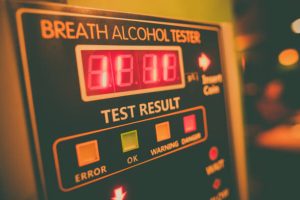
You go out with friends. Maybe to a restaurant or bar. You have several drinks, but think- I’m ok to drive. Guess again! You drive and get stopped by police because you are swerving or even worse, get into an accident. So, what should you do if you get a DUI?
Prevention is the best solution, therefore, you should know the signs that indicate you shouldn’t get behind the wheel.
- Slurred speech:
Slurred speech is the most common result of being inebriated, but it is hard to notice how you are speaking. Ask a non-drunk friend or the bartender if you are slurring your words.
- Trouble with balance:
Drinking makes you dizzy so if you are falling or bumping into things, you shouldn’t drive.
- Slow reaction time:
Alcohol affects your reaction time. Driving with a slower reaction time could make a major difference in how you drive.
- Unusual speech:
Slurred speech may not be the only indicator. You may also be speaking strangely – talking too fast, slow or loud.
- Trouble with recall:
Alcohol limits your ability to concentrate and you may have trouble remembering things. Ask a friend what your conversation was about 10 minutes ago. - Sobriety test :
If you are not sure you are inebriated, ask someone to have you recite the alphabet, walk a straight line or touch your nose with a finger
If you have any of these indications, you shouldn’t drive. However, some people can’t be convinced and will drive anyway. This is when you will be stopped by law enforcement and get a DUI.
DUI Traffic Stops
Most arrests for DUIs start with getting pulled over by police. Law enforcement must have reasonable suspicion of impairment, like swerving. Once stopped, a policeman may question if you have been drinking, especially if you are showing signs of impairment. If you indicate you may have had a drink or two, the police will probably want to give you a field sobriety test (FST) and a “preliminary alcohol screening” (PAS) test (commonly called a “breathalyzer”). These tests are usually voluntary, and indicate when a driver’s blood alcohol concentration (BAC) is .1% or above.
The National Highway Traffic Safety Administration (NHTSA) developed a standard test to measure impairment. Motorists are asked to perform a horizontal gaze nystagmus (HGN), walk and turn, and. one-leg stand. In almost every state in the U.S. there is a legal limit of .08% BAC, and there are “implied consent” laws that require drivers to submit to chemical testing when arrested. If a motorist refuses to take a test, more consequences are imposed. Once arrested, you will be booked, your license will be taken away, and you’ll be given a temporary permit. You may have to stay in jail until bailed out but if you are lucky, you will be released on recognizance.
DUI First Offenses
In New Jersey, offenses are separated into three levels based on your BAC. If your blood level is 0.8% but lower than 0.10%, the penalties include:
- Up to 30 days of jail time
- You may lose your driver’s license until you have a breathalyzer installed in your vehicle, also known as an ignition interlock device. You must use it for 3 months before gaining your license back.
- Up to a $400 fine, and court costs. Also may have surcharges that can cost hundreds of dollars.
- Between 12 and 48 hours in the Intoxicated Driver Resource Center.
A BAC of 0.10% and 0.15% will face similar penalties, but with a longer period using an ignition interlock device and higher fines. If you are arrested with a BAC higher than 0.15% you will forfeit your license for 6 months, as well as be required to use an ignition interlock device for 9 to 15 months after your license is reissued.
What Do You Do If You Get a DUI?
Receiving a DUI can be devastating for your whole family as well as impact your employment status. It is important to speak with an experienced attorney that can help. The Law Office of Andrew S. Maze, Esq. has over 25 years of knowledge fighting for NJ clients facing DUI charges. If your life has been upended because of a DUI arrest, contact the firm for an initial consultation.